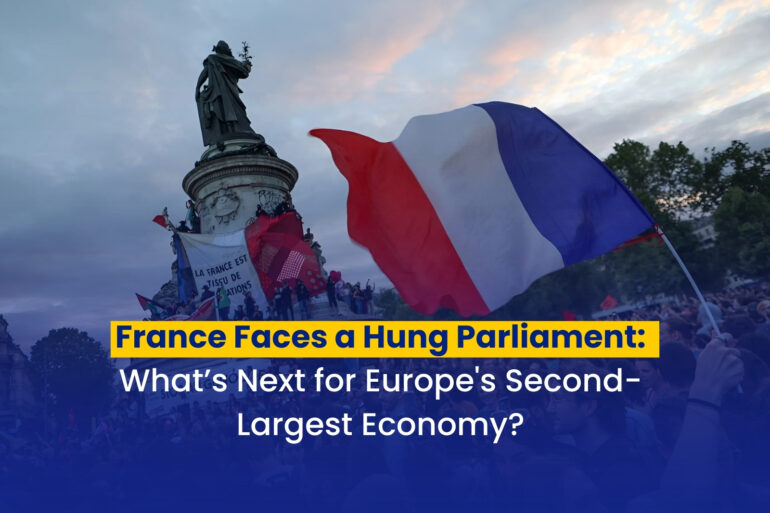France’s recent legislative elections have thrown the country into political uncertainty, as no single party secured a majority. With a hung parliament now in place, the government faces a tough road ahead in passing laws and maintaining stability.
Election Breakdown
- The left-wing New Popular Front (NFP) coalition emerged as the largest bloc.
- President Emmanuel Macron’s centrist alliance came second.
- The far-right National Rally (RN), which was predicted to win, finished third.
The outcome shocked analysts and citizens alike, revealing deep ideological divides across French society.
What a Hung Parliament Means
A hung parliament occurs when no party or alliance controls a majority of seats. This has three major implications for France:
- Coalition talks are crucial – Parties must negotiate alliances or risk political gridlock.
- Policy paralysis possible – Without unity, passing key reforms on immigration, pensions, and climate could stall.
- Public frustration may grow – Citizens could become disillusioned if the government fails to deliver on promises.
Global Reactions
- European Union leaders are watching closely, as France is a key player in EU policymaking.
- Financial markets remained calm but cautious, concerned about potential instability in the eurozone.
- Some fear that prolonged uncertainty could embolden fringe movements or trigger fresh elections.
What Comes Next?
- Negotiations behind closed doors – All major parties are now working to form a functioning coalition or agree on a minority government.
- Possible compromise PM – Macron may appoint a neutral figure as prime minister to mediate between blocs.
- No-confidence threats – Any government formed without a clear majority could be vulnerable to frequent challenges.
Final Thoughts
France now stands at a crossroads. The electorate has sent a clear message demanding change—but the path forward is anything but simple. Whether through compromise or conflict, what happens next in Paris will shape not only the country’s future, but also the broader direction of European politics in the coming years.

